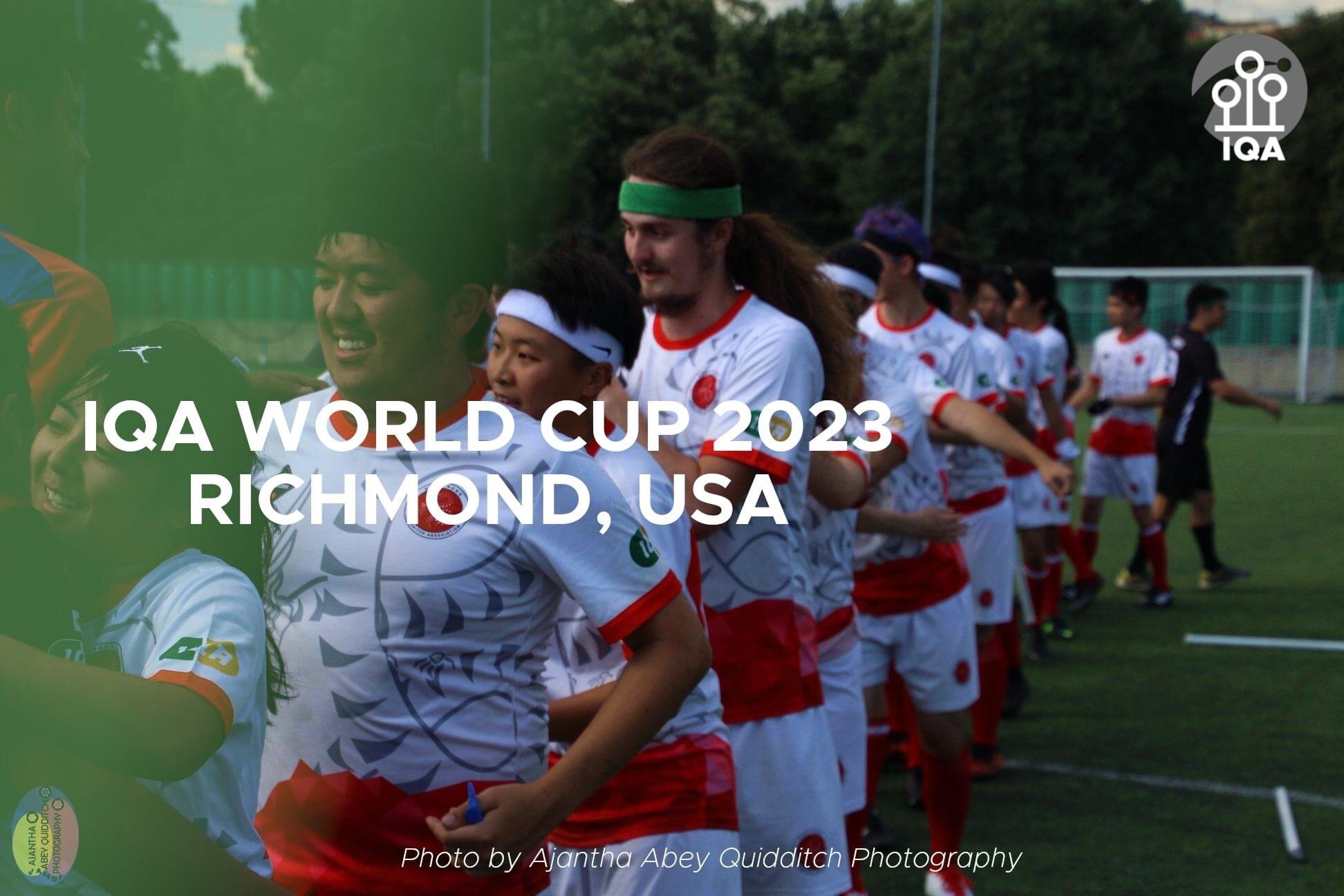Quidditch: World Cup decision raises questions
written by Daniel // translated by Luis Teschner
Zum deutschen Text geht es hier.
It is highly questionable whether the IQA has done itself any favors with this decision.
© Ajantha Abey / Source: IQA
The next Quidditch World Cup will be held in the USA. The Quidditch World Association IQA has decided to stick to the venue Richmond/Virginia. Although the World Cup will be postponed for another year to 2023, even then the problem of structural racism in the USA is unlikely to have been resolved. It is highly questionable whether the IQA has done itself any favors with this decision.
First of all, the IQA missed a great opportunity. With a decision not to hold the World Championships in the USA, they could have sent an important signal. A sign that a sport like Quidditch should not hold its most important event in a country where black people still have to fear being shot at any time during a police check.
This is not the first time the IQA has faced controversy.
Source: IQA
It's a shame that this opportunity was missed, but it's not the main point of criticism. Rather, the way this decision came about raises questions. After an open letter from the community made clear points against the USA as a venue in the summer of 2020, the IQA was under pressure. The open letter from Jamie Lafrance primarily addressed security concerns.
In response, the IQA created a BIPOC committee. It consisted of nine people (based in four different continents), with different gender backgrounds and countries of origin, who were to take as diverse a look as possible at the crucial issues. This committee was to investigate what criteria should be set for a World Cup venue and whether Richmond/Virginia fulfills these criteria. Those with a negative attitude towards the IQA might now suspect that the IQA did this to elegantly outsource this difficult decision.
In fact, it is much more likely to suggest that the IQA wanted to obtain as diverse an opinion as possible from people with a wide variety of backgrounds. After all, among the members of the BIPOC committee are numerous people such as Keith Jones or Christian Barnes, who have repeatedly denounced racism publicly and are affected by racism themselves. Barnes had expressed in the discussion surrounding the open letter that he did not feel safe as a black man at a tournament in the USA.
The BIPOC committee was definitely filled with critically minded individuals. So how can it be that this committee ultimately came to the conclusion that a World Cup in the US city of Richmond would be a good idea?
The wait for the next World Cup continues.
The committee itself says that, in contrast to the summer of 2020, Donald Trump is no longer president and Black Lives Matter has achieved a lot. Both are certainly indisputable. A president not named Donald Trump makes the country (in general, by the way) a safer and more open-minded place. And the successes of Black Lives Matter are undeniable as well. Still, structural racism in the U.S. is anything but overcome. To what extent minorities can now feel safe in the USA remains an open question.
It would have been all the more important for the committee to address this question in detail and to obtain various assessments of the situation. But it is precisely at this point that there is cause for criticism. The IQA has published the BIPOC Committee's approach in a presentation here.
It is first apparent that the committee took a great deal of care in drafting the crucial questions and criteria. National associations were consulted as well as volunteers and people who actively practice Quidditch on the field. So far so good - a diverse view from different points of view was definitely warranted here in the drafting of the questions.
The problem is the second part of the committee's work: answering the questions. Here, Richmond tourism was the only party spoken to. Looking closer, this is an absurd approach. Thus, leaving the answer to the question of whether Richmond is a suitable venue to the city itself.
The last World Cup game was the final 2018, where the US won against Belgium.
Of course, the tourism authority of the city of Richmond has a commercial interest in the Quidditch World Cup being held in Richmond. To that extent, there can be no question here of an objective answer to the question of whether Richmond is a safe city. Of course, Richmond tourism says that safety can be guaranteed. But, if you'll pardon the expression, that's probably about as valid as the typical dog owner saying, "He just wants to play."
In the Richmond case, it would have been important to include other parties. It would have been interesting to hear what local Black Lives Matter groups or local representation from the LGBTQ+ community had to say about the crucial questions. Is their city a safe venue for a Quidditch World Cup? Those assessments would have been interesting. It doesn't take much imagination to imagine that in this case a very different picture of the situation would have been painted. In this respect, this approach leaves lots of open questions.
Of course, it may be that the BIPOC committee relied on its own assessment here. After all, as mentioned above, it was staffed with critical minds and concerned individuals. In fact, it is heard that much went on unofficially and that there definitely was contact with the local Quidditch community. But at least from the publication of the IQA this does not become clear and a press inquiry on this topic remained unanswered. Conclusively, many questions are still open and this decision in favor of the USA remains at least hard to understand.




